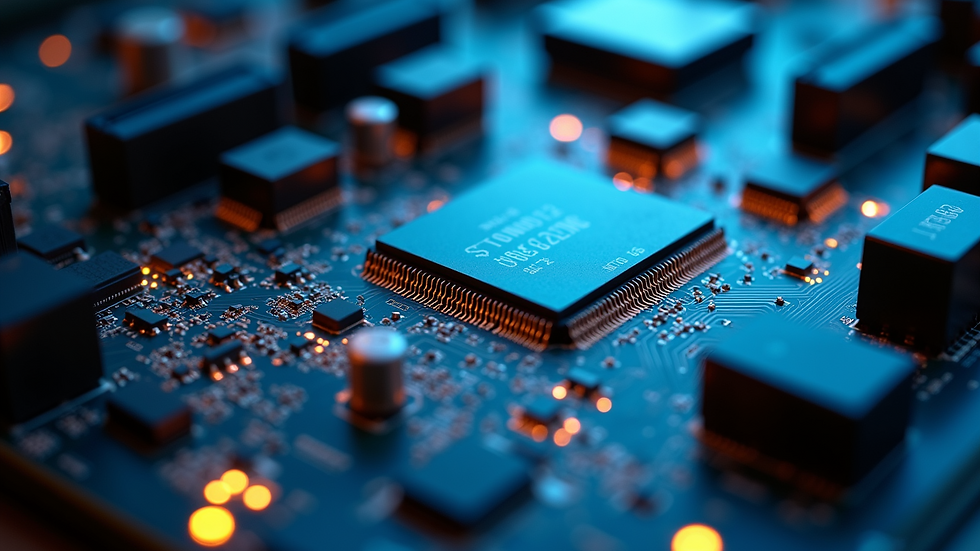Overview of IGCSE Computer Science
- thecomputerscience4
- Oct 13
- 3 min read
The world of technology is evolving rapidly, and understanding the fundamentals of computing is becoming increasingly important. The IGCSE course in computer science offers students a solid foundation in this dynamic field. This guide provides an in-depth overview of the key topics covered in the IGCSE curriculum, practical insights, and useful recommendations for learners aiming to excel.
Exploring the Core IGCSE Course Topics
The IGCSE computer science syllabus is designed to introduce students to essential concepts and skills. It covers a broad range of topics that build a strong base for further studies or careers in technology. Here are some of the main areas students will encounter:
Data Representation: Understanding how data is stored and processed in computers, including binary systems, hexadecimal, and character encoding.
Computer Systems: Learning about hardware components, software types, and how they interact.
Networks: Exploring different types of networks, protocols, and security measures.
Algorithms and Programming: Developing problem-solving skills through algorithm design and programming languages.
Databases: Introduction to data management and database concepts.
Cybersecurity: Basics of protecting information and systems from cyber threats.
Each topic is structured to provide both theoretical knowledge and practical application, ensuring students gain a comprehensive understanding.

What is IGCSE in Computer Science?
The International General Certificate of Secondary Education (IGCSE) in computer science is a globally recognised qualification for students typically aged 14-16. It aims to develop computational thinking and problem-solving skills through a balanced mix of theory and practical work.
Students learn to write programs, understand how computers work, and explore the impact of technology on society. The course encourages logical thinking and creativity, which are valuable skills beyond the classroom.
Assessment usually includes written exams and practical programming tasks. This combination ensures students not only understand concepts but can also apply them effectively.

Practical Applications and Programming Skills
One of the most engaging parts of the IGCSE course is programming. Students often start with languages like Python or pseudocode to develop algorithms. This hands-on experience helps them understand how to break down problems and create step-by-step solutions.
For example, students might write a program to sort a list of numbers or simulate a simple game. These exercises build confidence and prepare learners for more advanced programming challenges.
Additionally, understanding data structures such as arrays and lists is crucial. These concepts enable efficient data handling and manipulation, which are fundamental in software development.
To succeed, students should practice regularly, experiment with different problems, and seek feedback. Online resources and coding platforms can be excellent tools for extra practice.

Tips for Excelling in the IGCSE Computer Science Course
Achieving success in this course requires a strategic approach. Here are some actionable recommendations:
Master the Basics: Focus on understanding fundamental concepts like binary arithmetic and logic gates.
Practice Programming: Write code frequently to improve problem-solving skills and syntax familiarity.
Use Visual Aids: Diagrams and flowcharts can help clarify complex processes and algorithms.
Review Past Papers: Familiarise yourself with exam formats and question types.
Stay Updated: Technology evolves quickly, so keep an eye on new developments and tools.
Join Study Groups: Collaborating with peers can enhance learning and provide different perspectives.
By following these tips, students can build a strong foundation and approach exams with confidence.
The Importance of Understanding Computer Systems and Networks
A significant part of the IGCSE curriculum focuses on how computers operate and communicate. Understanding hardware components such as the CPU, memory, and input/output devices is essential. This knowledge helps students appreciate the physical aspects behind software operations.
Networking topics cover how devices connect and share information. Students learn about different network types like LAN and WAN, protocols such as TCP/IP, and security concerns including firewalls and encryption.
This section of the course highlights the interconnected nature of modern computing and the importance of safeguarding data.
For those interested in exploring more about the course and resources, the igcse computer science site offers valuable lessons and materials.
Preparing for Future Opportunities with IGCSE Computer Science
Completing the IGCSE computer science course opens doors to various academic and career paths. It provides a solid foundation for A-levels, vocational courses, or entry-level jobs in IT and software development.
The skills gained - logical thinking, programming, and understanding of systems - are highly sought after in many industries. Moreover, the course encourages a mindset of continuous learning, which is vital in the fast-paced tech world.
Students are encouraged to explore extracurricular activities such as coding clubs, competitions, and online courses to deepen their knowledge and stay motivated.
This overview highlights the essential aspects of the IGCSE course topics in computer science. With dedication and the right approach, students can gain valuable skills that will serve them well in their academic and professional journeys.



Comments